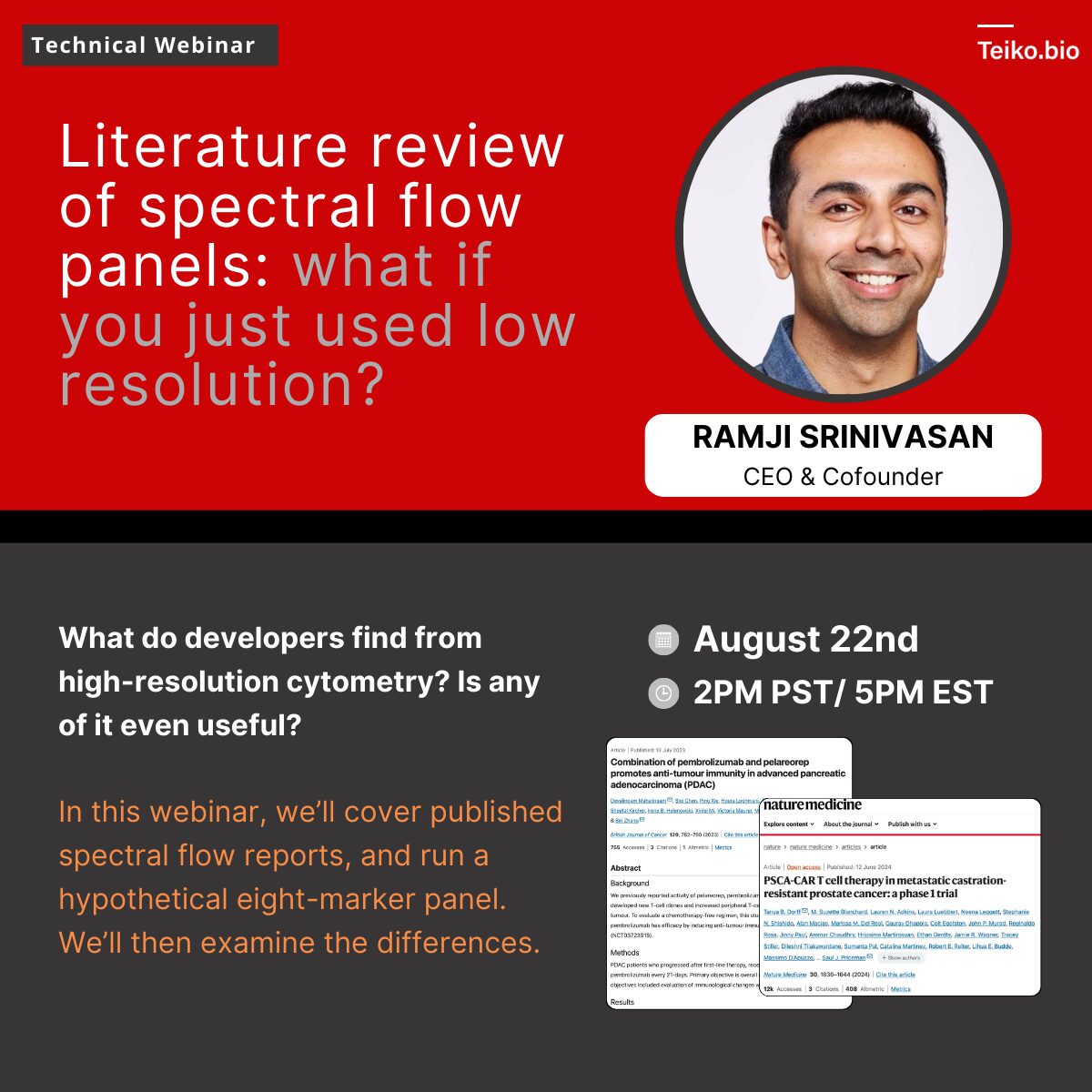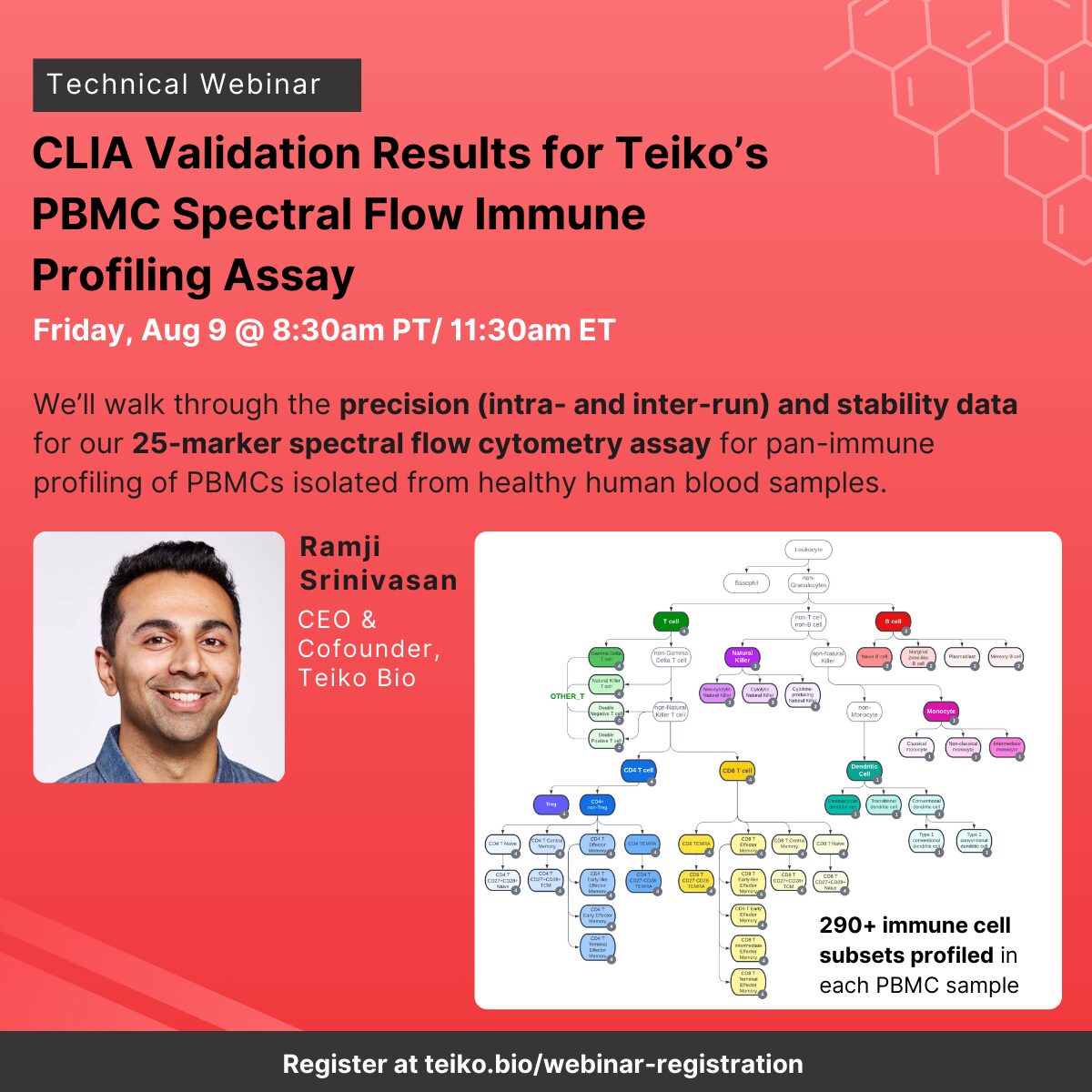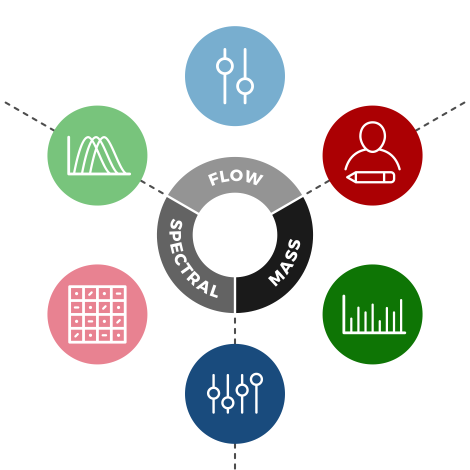About the Webinar
In this webinar, Ramji Srinivasan, CEO and cofounder, explains the advantages of fixed sample processing in spectral flow cytometry. We compared live versus fixed samples across 36 phenotypic populations and 62 state marker subtypes, revealing:
- 0.97 correlation in population frequencies
- 0.91 correlation in state marker-positive subset frequencies
Why does this matter?
For immunotherapy developers, managing fresh specimen processing in clinical trials is a significant hurdle, with 10-20% failure rates due to variability in handling and logistics. Fixed sample processing offers powerful solutions to these challenges:
- Reduce failure rates by 10-20X: Centralize flow analysis and eliminate the need for a flow lab in every trial location. Consistency is maximized when all samples are processed by the same facility.
- Batch sample analysis: Store fixed samples until an entire set (e.g., all timepoints from a single patient) is ready, ensuring consistent data comparison across the study.
- Cut costs and increase flexibility: By storing samples at -80°C, you can delay analysis until you’re sure which samples to focus on, reducing upfront processing commitments and expanding your analysis window.
About the Speaker
Before Teiko, Ramji was Cofounder, CEO and Chairman of Counsyl, a women’s health genetic screening laboratory. Counsyl screened over 1M prospective parents, mothers-to-be and women at risk of hereditary cancer. In 2018, Counsyl was acquired by Myriad Genetics, Inc for $375M in cash and stock.
Ramji earned a B.S. in computer science and an M.S. in financial mathematics, both from Stanford University. Ramji also attended Stanford’s Graduate School of Business before dropping out to start Counsyl.





